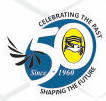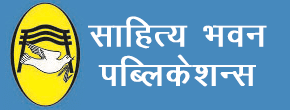Management Principles & Application Book for B.Com. (Hons.): Semester III of Kolhan Universtiy, Chaibasa
It gives us immense pleasure to present the revised and enlarged edition of the book on Management: Principles and Application. In the book we have maintained the earlier pattern and style of the book which has been appreciated and lauded over the past so many years. Latest references have also been incorporated making it an authoritative and a very valuable book for the students.
The further highlights of the book are simplicity of explanation combined with a style that ensures easy under standing. We have tried to put the subject-matter in such a way that the students get the feeling of live teacher interacting with them.
Management Principles & Application Syllabus For Vinoba Bhave University, Hazaribagh and Sido Kanhu Murmu University, Dumka of B.Com. (Hons.) : Semester II
Unit I: Introduction
Concept: Need for Study, Managerial Functions – An overview; Coordination- Essence of Manager ship.Evolution of Management Thought, Classical Approach – Taylor, Fayol, Neo Classical and Human Relations Approach – Mayo, Hawthorne Experiments,Behavioral Approach, Contingent Approach – Lawerence & Lorsch, MBO-Peter F. Drucker, Re-engineering – Hammer and Champy, Michael Porter – Five -force analysis, Three Honseric strategies and value chain analysis, Senge’s Learning Organization, Fortune at the Bottom of Pyramid – C. K. Prahalad.
Unit II: Planning
Types of Plan – an overview to highlight the differences.Strategic planning – Concept, process, Importance and limitations.Environmental Analysis and diagnosis (Internal and external environment) -Definition, Importance and Techniques (SWOT/TOWS/ WOT SUP, BCG Matrix,Competitor Analysis), Business environment; Concept and Components.Decision – making – concept, importance; Committee and Group Decision – making,Process, perfect rationality and bounded rationality, techniques (qualitative an dquantitative, MIS, DSS).
Unit III: Organizing
Concept, Process of organizing – An overview, Span of management, Different types of authority (line and staff and functional), Decentralization, Delegation Formal and Informal Structure Principle of Organizing.
Unit IV: Staffing and Leading
Concept of staffing, An overview of staffing Motivation – Concept, Importance, extrinsic and intrinsic motivation; Major Motivation theories – Maslow’s need Hierarchy theory; Hertzberg’s Two – factortheory. Leadership – Concept, Importance, Theories of Leadership (Likert’s scale theory,Blake and Mouten’s Grid theory). Transactional leadership, Transformational Leadership, Transforming Leadership.Communication – Concept, purpose, process; Oral and written communication;Formal and informal communication networks, Barriers to communication,Overcoming barriers to communication.
Unit V: Control
Concept, Process, Limitation, Principles of Effective Control, Major Techniques of control – Ratio Analysis (ROI), Budgetary Control, EVA, MVA, PERT/CPM.Emerging issues in Management
Management Principles & Applicationt Syllabus For Ranchi University, Ranchi of B.Com. (Hons.) : Semester II
Unit II: Planning
2.1 Types of Plan – an overview to highlight the differences.
2.2 Strategic planning – Concept, process, Importance and limitations.
2.3 Environmental Analysis and diagnosis (Internal and external environment)- Definition, Importance and Techniques (SWOT/TOWS/WOTS-UP, BCG Matrix, Competitor Analysis), Business environment; Concept and Components.
2.4 Decision – making – concept, importance; Committee and Group Decision- making, Process, perfect rationality and bounded rationality, techniques(qualitative and quantitative, MIS, DSS).
Unit III: Organising
3.1 Concept
3.2 Process of organizing – An overview, Span of management, Different typesof authority (line and staff and functional), Decentralization, Delegation
3.3 Formal and Informal Structure
3.4 Principle of Organizing.
3.5 Network Organization Structure
Unit IV: Staffing and Leading
4.1 Concept of staffing, An overview of staffing
4.2 Motivation – Concept, Importance, extrinsic and intrinsic motivation; MajorMotivation theories – Maslow’s need Hierarchy theory; Hertzberg’s Two- factor theory, Vroom’s Expectation Theory.
4.3 Leadership – Concept, Importance, Major theories of Leadership (Likert’sscale theory, Blake and Mouten’s Grid theory). House’s Path Goal Theory,Fred Fielder’s situational Leadership), Transactional leadership,Trans formational Leadership, Transforming Leadership.
4.4 Communication – Concept, purpose, process; Oral and written communication; Formal and informal communication networks, Barriersto communication, Overcoming barriers to communication.
Unit V: Control
5.1 Concept, Process, Limitation, Principles of Effective Control, Major Techniques of control – Ratio Analysis (ROI), Budgetary Control, EVA, MVA,PERT/CPM.
5.2 Emerging issues in Management.
Management Syllabus For Kolhan Universtiy, Chaibasa of B.Com. (Hons.) : Semester III
Unit I: Introduction
1.1 Concept : Need for study; Managerial functions-An overview; Coordination Essence of management.
1.2 Evolution of Management Thought : Classical approach-Taylor, Fayol, Neo classical and Human relations approach-Hawthorne experiments, Behavioural approach, Systems approach.
1.3 Trends and Challenges of Management in Global Scenario Emerging is-sues in management.
Unit II: Planning
2.1 Types of Plan-An overview.
2.2 Strategic planning-Concept, process, Importance and limitations.
2.3 Environmental analysis and diagnosis (Internal and external environment)-Definition, Importance and Techniques (SWOT/TOWS).
2.4 Decision-making-Concept, importance, group decision making, Individual versus group decision making, Decision making process, perfect rational-ity and bounded rationality, techniques (qualitative and quantitative).
Unit III: Organising
3.1 Concept.
3.2 Process of organizing-An overview, span of management, different types of authority (line, staff and functional), decentralization, delegation.
3.3 Formal and informal organization.
3.4 Principles of organizing.
3.5 Types of organization structure.
Unit IV: Staffing and Directing
4.1 Concept of staffing-Recruitment and Selection; Orientation; Training and Development : Career Development; Performance Appraisal.
4.2 Motivation-Concept, importance, intrinsic and extrinsic motivation; Major motivation theories Maslow’s need hierarchy theory.
4.3 Leadership-Concept, importance; Major theories of leadership (Likert’sscale theory), Transactional leadership, Trans formational leadership,Transforming leadership.
4.4 Communication-Concept, Purpose, process; Oral and written communication; Formal and informal communication networks; Barriers to communication, overcoming barriers to communication.
Unit V: Control
5.1 Concept, process, limitation, principles of effective control, Major tech-niques of control-Ratio analysis (ROI), budgetary control, PERT, and CPM.
Management Principles & Application Book Contents
- Management: Concept, Nature, Process and Significance
- Management Roles (MINTZBERG)
- Functions Areas of Management : An Overview
- Development of Management Thought (Classical, NEO-Classical and Contingency Approaches)
- Planning: Concept, Process and Types
- Decision-Making: Concept, Process and bounded Rationality
- Management by Objectives
- Corporate Planning and Strategy formulation
- Environmental Analysis and Diagnosis
- Concept of Organization: Concept, Nature, Process and Significance
- Authority and Responsibility Relationships
- Centralization and Decentralization
- Departmentation
- Organization Structure
- Motivation
- Leadership
- Leadership Theories
- Communication: Nature, Process And Networks
- Barriers to Communication
- Effective Communication
- Managerial Control
- Management of Change
- Business Environment
- Staffing
- Co-Ordination
- Group Decision-Making and Individual Versus group Decision Making
- Training and Development
- Career Development
- Performance Appraisal
- Trends and Challenges of Management in Global Scenario
- Emerging Issues in Management


















Apul das –
Very good